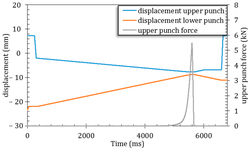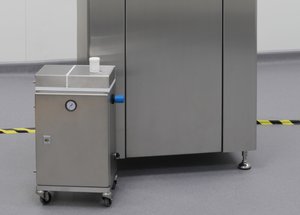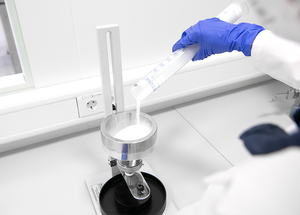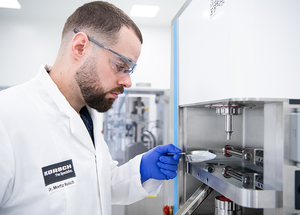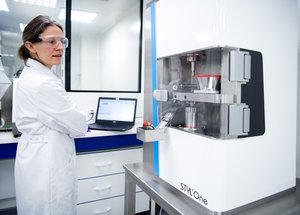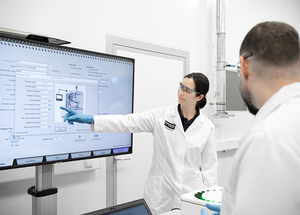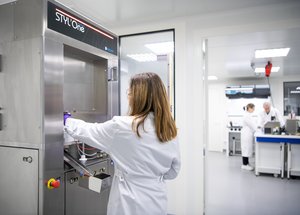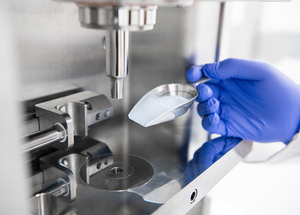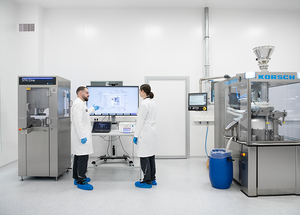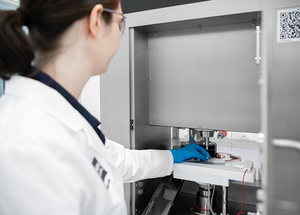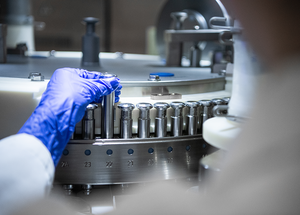Scientific papers
Phenotyping of cytochrome P450 isoenzymes serves for metabolic profiling, typically involving the administration of phenotyping cocktails consisting of individual marketed products. However, these cocktails are not specifically designed for diagnostic purposes. To address this, a formulation strategy has been developed, applicable to any phenotyping cocktail. The validation process included in vitro and in vivo assessments in human volunteers using a cocktail comprising caffeine, efavirenz, flurbiprofen, metoprolol, midazolam, and omeprazole (Basel Cocktail). Spray-dried di-calcium phosphate particles (Fujicalin) were employed as an inert drug carrier for the probe drugs. Successful loading of all drugs into Fujicalin was achieved through a solvent evaporation method. The production of mini-tablets exhibited favorable physical characteristics, expected drug content, and immediate release profiles across all drug formulations. These mini-tablets were then encapsulated within a CombiCap for a pilot study involving human volunteers. Plasma samples collected were analyzed using liquid chromatography and mass spectrometry. The plasma concentration ratios between the parent drugs and their respective metabolites demonstrated equivalence between the novel CombiCap formulation and individually dosed Basel Cocktail drugs. The study concludes that the CombiCap formulation platform is easily adaptable for various phenotyping cocktails, thanks to its scalable and modular design, enabling the simple and convenient combination of variable doses of different probe drugs.
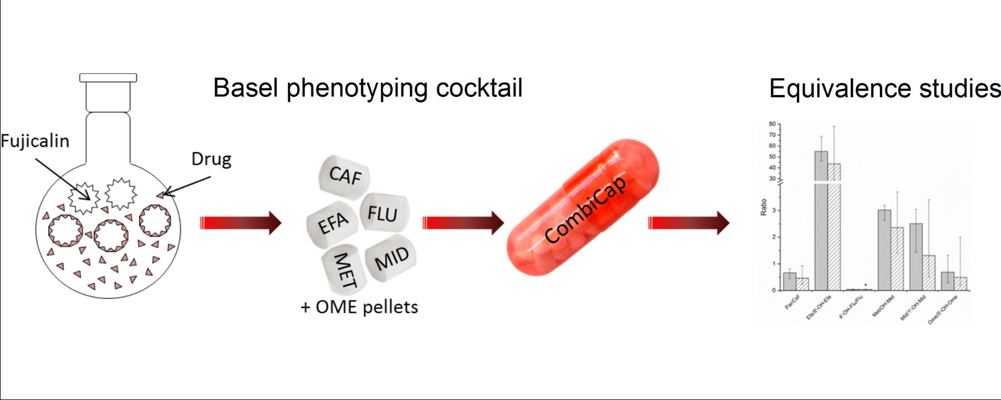
Comments
No comments posted yet.
Add a comment


